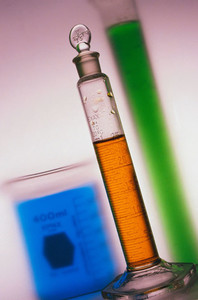Both EMA and FDA are increasing their requirements for stability testing, especially for generic drugs. These changes could significantly increase the length of time required to gain regulatory approval and increase costs for generics manufacturers to get their drugs onto the market.
New stability testing rules for generics
Home/Policies & Legislation
|
Posted 28/10/2011
 0
Post your comment
0
Post your comment

EMA issued new draft guidelines in August 2011 on stability testing required to support a variation to a marketing authorisation. Under the new rules, additional data must be submitted to accompany major, type II variations, such as a change in batch size or switching suppliers. The draft document is posted on the EMA website.
FDA announced on 4 October 2011 that it will soon require generic drugmakers to submit 12 months of product stability data with abbreviated new drug applications (ANDAs)—four times as long as currently mandated. At the moment certain new drug applications must have 12 months real-time and six months accelerated stability testing on three batches at the time of filing. Until now, ANDAs had to have just three months of accelerated stability data at filing to get two years of shelf life—confirmed later by room temperature data.
The draft FDA proposals are at the moment open for comments. They will increase the stringency of stability test for generics manufacturers similar to what is required for original marketing authorisations. An ANDA will take nine months longer before filing and cost more to develop. So in the US additional stability requirements, generics user fees and the increased documentation will continue to put pressure on smaller generics companies.
Related articles
Still no word from FDA on generic user fees
Negotiations on generic drug user fees
Source: Camargoblog, EMA, FDAnews, Regulatory Affairs Professionals Society
Guidelines
US guidance to remove biosimilar comparative efficacy studies
New guidance for biologicals in Pakistan and Hong Kong’s independent drug regulatory authority
WHO to remove animal tests and establish 17 reference standards for biologicals

Home/Policies & Legislation Posted 07/01/2026
ANVISA tackles 24-month backlog in biologicals post-registration petitions

Home/Policies & Legislation Posted 10/10/2025
The best selling biotechnology drugs of 2008: the next biosimilars targets








Post your comment